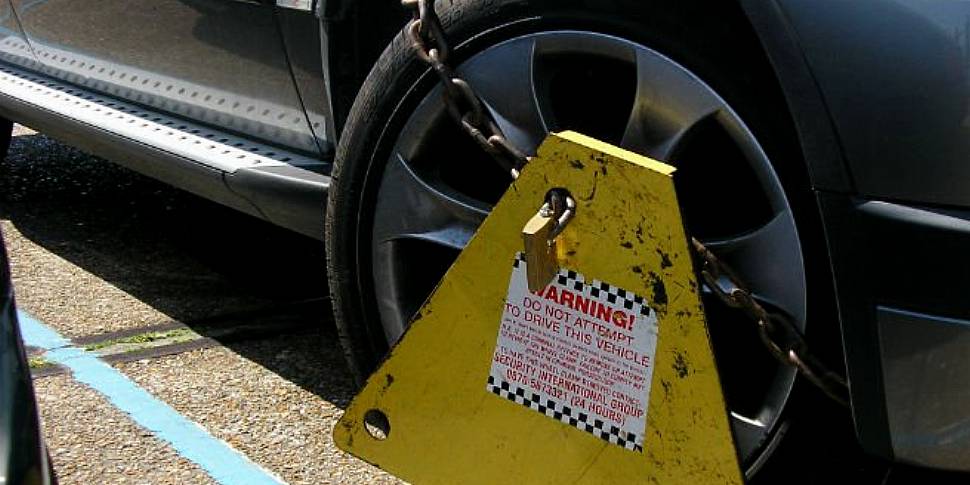The Dáil has approved a new bill to regulate private clampers.
New legislation from the Minister for Transport, Paschal Donohoe will put new limits on clamping, and make sure all decisions can be appealed, with the intention not of protecting people who park illegally, but rather helping those who fall victim to unfair practices.
The new laws will see clamping regulated for the first time in both public and private lands and would see the regulation of clamping, in all areas, coming under the remit of the National Transport Authority (NTA). The NTA will set maximum release fees, regulate for provision of appropriate signage advising clamping is in effect in an area, and establish a two-tier clamping appeals process for ministers.
The current law means that a local authority, An Garda Siochána or a traffic warden can clamp a vehicle parked illegally on a public road; however there is currently no regulation covering private areas.
The law is intended to address the issue of disputed clamping, with Mr Donohoe telling the Dáil today that “the impetus for this commitment” is rooted in public concern regarding “the activities of some clamping operators and the extent to which clamping may be carried out in a less than fair manner, with no obvious consistent or transparent recourse to appeal against perceived abuses.
“The areas of greatest public concern relate to the oftentimes absence of appropriate information signage for motorists, the level of clamp release charges applied and the lack of a clearly identifiable and accessible clamping appeals process.”
Mr Donohoe said that “the introduction of a statutory licensing regime was deemed to be excessive and could be too costly to implement”, and so “it is not the aim of this bill to determine in what places clamping should or should not take place.” Rather, the Minister said, the bill would set out that “if clamping is used as a means of parking control, then its provisions must be complied with.”
The law will now go to a committee and could be in effect by the summer.









